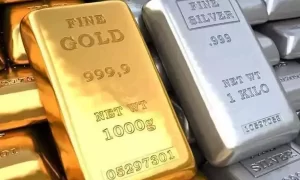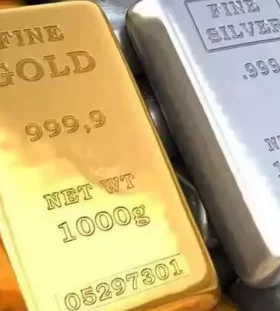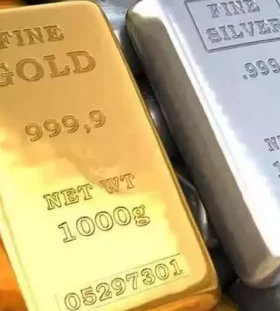Businesses are increasingly accepting ETH as a payment. Here’s why tattoo artists should also get on board
Cryptocurrencies have taken the world by storm, with more and more people taking an interest in these revolutionary assets. Different businesses, such as travel agencies and taxi services, are now accepting ETH as a payment option. Following the trends in the NFT world, artists are also showing enthusiasm for digital money as a form of payment, including tattoo designers. Some tattoo services even offer discounts to those paying with cryptocurrency like Bitcoin.
As the crypto world continues to expand and more people are discovering how to buy ethereum, companies are starting to embrace the reality of digital money – even luxury brands like Gucci have recognized crypto as a way to engage with modern customers. This helps businesses expand their client base and stay relevant in a constantly changing world, reaping the incredible benefits and gaining a competitive edge in the business sector. In the tattoo industry, money is the main form of payment, and while it’s not yet common to hear of many tattoo services accepting crypto, this is likely to change in the near future as tattoo artists are starting to acknowledge the advantages of being paid with digital money.

Table of Contents
From cars and food to clothes and travel: the flexibility of buying almost anything with ETH
For crypto enthusiasts, purchasing goods with ETH is a dream come true. Luckily, this is a reality in 2023, as there are a lot of things you can buy with this cryptocurrency:
- Real estate;
- Jewelry;
- Cars;
- Food;
- Plane tickets and accommodation;
- Concert tickets;
- Video games;
- Professional services.
Accepting ETH as payment: what would it mean for tattoo artists?
Switching to a blockchain-based ecosystem brings numerous advantages to businesses operating in different sectors:
- It offers customers an additional payment option. Businesses can only be successful if they keep an open mind and stay on top of the latest advancements – otherwise, they inevitably fall behind. Hence, in a world where cryptocurrencies are becoming more prominent, including them as a payment option provides a competitive advantage, attracting many crypto enthusiasts who can put their assets to good use by making a valuable purchase.
- It provides transparency. A decentralized ecosystem has a transparent nature, making customers feel more confident when buying something. Crypto transactions occur on the blockchain and are irrevocable once carried out.
- It decreases fraud. Ethereum transactions are executed through smart contracts, reducing the risk of fraudulent activities.
- It enables fast transactions. Unlike conventional international payments, ETH global transactions are faster and completed in only a few minutes.
These are only a few strong reasons why businesses accept ETH as a means of payment. Given the popularity of tattoos among GenZ and their growing interest in cryptocurrencies, it’s pretty obvious how combining the two would benefit tattoo artists. In any business, diversifying payment options gives customers more freedom and control over how they want to pay for their purchases, naturally resulting in increased customer satisfaction and, ultimately, increased sales.
The same is true when it comes to tattoo services – customers would be more likely to choose a tattoo artist who accepts crypto payment than someone who limits their options. It’s no secret that succeeding in the tattoo industry can take years, and artists must invest significant time and money to thrive. Competition is fierce, so artists must be resilient and stand out through their unique portfolios. But talent isn’t enough as a tattoo designer – many other factors will determine whether someone can flourish in this harsh industry, and their attitude towards cryptocurrency is one of them. This probably isn’t surprising, given the appeal of digital assets to GenZ.
How NFTs are redefining the tattoo industry
Non-fungible tokens, or NFTs, are changing how artists create and sell their pieces, transforming the tattoo industry in unimaginable ways. With NFTs, tattoos can now be collected and displayed online, meaning everyone can see them. This translates into bigger opportunities for tattoo artists, allowing them to expand their audience to a greater extent and collect royalties. Clients and tattoo artists alike can benefit significantly from NFTs. Those turning their tattoo into NFT can sell them on a marketplace or pass them on to the next generations to share the memories and history associated with them.
On the other hand, tattoo artists can gain more exposure, thus building their reputation and supplying clients with tattoos before they physically finish the work. In fact, it is possible to purchase a tattoo from an artist located in a different country and get the actual ink locally! Now, that’s pretty amazing, isn’t it? NFTs also allow tattoo artists to earn royalties for their artwork. When they mint a tattoo for the first time, they can establish a specific royalty percentage which they can earn on every secondary sale.
NFTs are clearly bringing new opportunities to tattoo artists, but the question is, how does a physical tattoo become a digitalized NFT? Well, the process is quite simple. First, the artists must create a design draft, which will be sent to the client before getting the tattoo. Once the design is approved, the draft undergoes a digitalization process. Finally, it is minted on the blockchain, resulting in an NFT. In short, you can create an NFT tattoo if you can get it into a digital format.
Getting on board with ETH payment
Accepting ETH as a payment alternative has benefits, but there are also challenges, such as price volatility. Just like any other crypto, ETH experiences price fluctuations, so it’s crucial to keep this aspect in mind when setting a price for a specific good or service and convert ETH to fiat money to mitigate potential losses.
That said, there are different ways tattoo artists can start receiving ETH for their services, including:
- ETH wallets;
- Payment processors;
- Payment gateways;
- Smart contracts.
As a tattoo artist, you shouldn’t spend time stressing about payments – instead, you should be able to focus on doing what you are so passionate about, namely creating sensational tattoos for your clients.
So, will you embrace crypto and meet your customers where they are?


